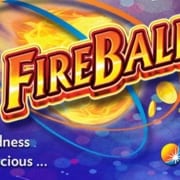BEER FLOWS AGAIN AS ENGLAND’S PUBS REOPEN
Some of the beer may be stale from sitting in kegs for over three months, but Britons were still eager to sip it as England reopened its beloved pubs as part of the next stage of easing the coronavirus lockdown.
“Gorgeous,” sighed Andrew Slawinski at a pub in northern London, echoing a sentiment possibly felt across the nation which shuttered its bars, cafes and restaurants in late March.
The government is trying to tease its key hospitality sector back to life on what has been touted as “Super Saturday”, with restaurants finally allowed to open their doors to customers again and barbers and hairdressers also able to get their clippers out.
Prince William got into the spirit of things, and was photographed visiting a pub in eastern England, but dutifully using hand sanitiser from a wall-mounted dispenser first.
The Spectator magazine warned against the dangers of drinking stale beer in pubs that were all shut in a hurry, suggesting that a pint actually might taste better on Sunday.
And Rishi Sunak, the finance minister, urged Britons to “eat out to help out”, pointing out that pubs and restaurants often employed younger people entering the jobs market for the first time.
“This is really about social justice,” said Sunak.
But safety was still at the front of many people’s mind and fear that social distancing measures could be forgotten as alcohol blood levels rise later in the evening.
“I’m no killjoy,” said Health Secretary Matt Hancock, “but the virus can still kill”.
‘Total chaos’
The first nationwide closure of pubs since the Great Plague of 1665 has contributed to a record slump in beer sales and compounded existing financial difficulties in the sector.
But takings could be up nearly 75 percent to £210 million ($262 million, 233 million euros) this weekend, according to the Centre for Economics and Business Research, a think-tank.
It predicted 6.5 million customers — 1.5 million more than a usual weekend.
The British Beer and Pub Association said it hoped 80 percent of England’s 28,000 pubs could open but it could take 12 months or more for trade to return to normal.
“If 10 percent of them are profitable, that will be a surprise to us,” said chief executive Emma McClarkin, warning up to 18,000 drinking establishments were at risk of closure by the year end.
Some pubs are adopting a wait-and-see approach, as several surveys indicated many people were hesitant about mixing in larger groups.
In Newcastle, northeast England, where pubs are normally packed at weekends, just one in three city centre pubs, bars and restaurants will be open, the local council said.
“We are genuinely concerned that this could be a day of total chaos for the pub trade,” the owners of the popular Tyne Bar on the city’s Quayside said in a tweet.
“We’ve decided it’s not worth the risk.”
Government guidelines insist on “minimum contact” between staff and customers, with table service only. Drinkers will also have to give contact details in case of any outbreak.
Britain has had some 44,000 deaths in the outbreak — the third-highest in the world — and concern remains about a second spike of infections as the lockdown is eased.
Pubs in Northern Ireland opened on Friday. A partial reopening is slated for July 13 in Wales and July 15 in Scotland.
Don’t blow it!
Prime Minister Boris Johnson has called for the public to use common sense. “My message is, let’s not blow this now, folks,” he told LBC radio on Friday.
And he defended a weekend reopening, dismissing fears of raucous New Year’s Eve-style celebrations to mark the end of lockdown.
Health secretary Hancock told The Daily Mail that he would have a pint with his brother but would otherwise have a quiet night, describing how the crisis made him rethink his entire approach to life.
“People I admire and respect have died. Friends. I got off lightly,” he said in the sombre interview.
The hospitality industry and the emergency services have also warned the public not to overdo it.
Brian Booth, chairman of West Yorkshire Police Federation representing rank-and-file officers, said alcohol fuelled crime and added pressure on overstretched health services.
Local accident and emergency departments were “akin to a circus full of drunken clowns” before the outbreak. “We do not need this once again,” he added.











